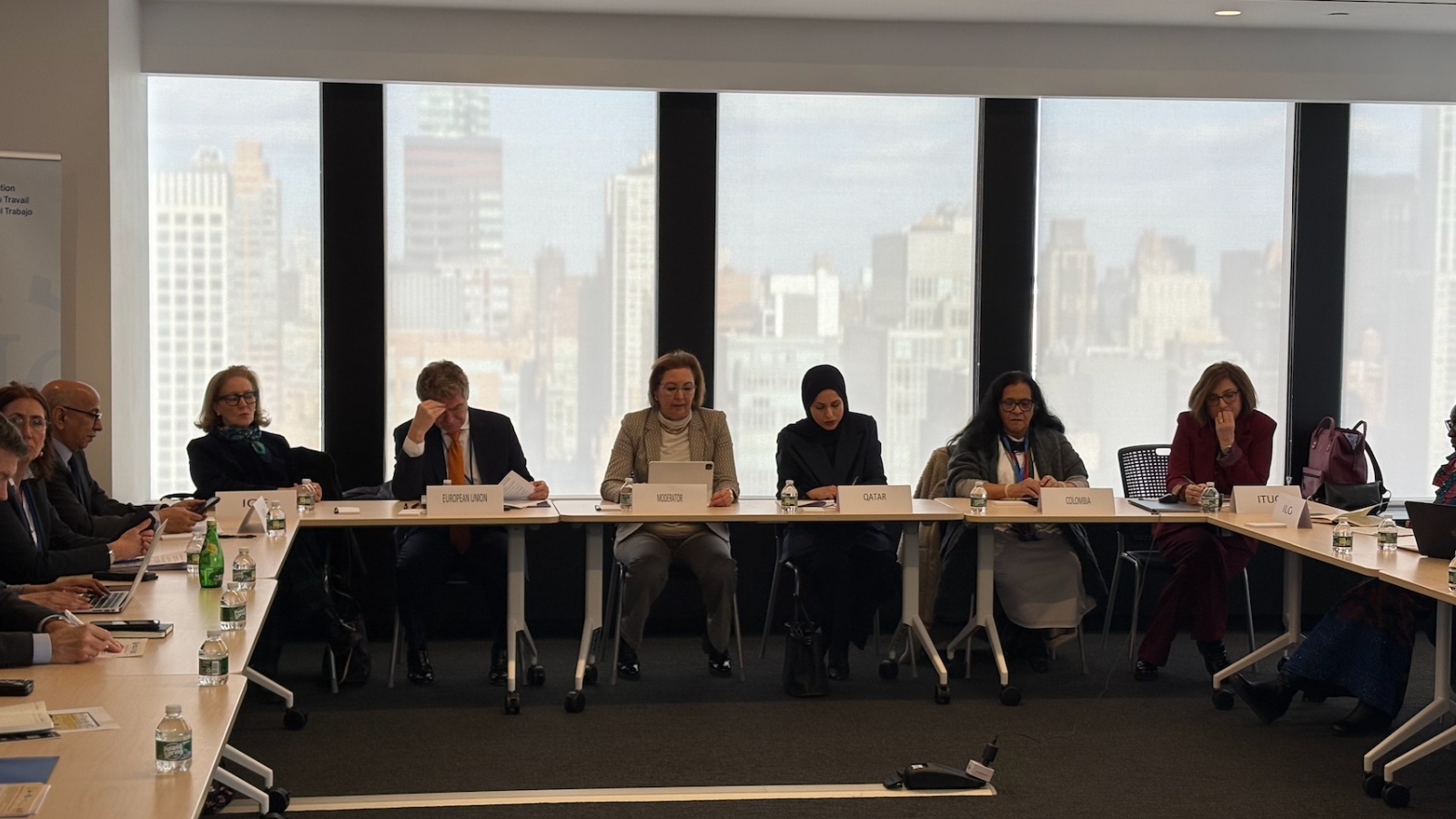
On 10 February, the International Labour Organization (ILO) hosted the side event Tripartite Solutions for Social Justice: Pathway to the World Social Summit/Second World Summit on Social Development at CSocD63.
Moderator, Ms. Laura Thompson, Assistant Director-General for External and Corporate Relations, ILO, highlighted that the purpose of the session was to build momentum for the Second World Summit on Social Development, as well as for invited states to come up with new solutions to climate change, erosion of institutions, and uphold the tripartite approach that the ILO was founded on.
Mr. Mario Nava, Director-General Employment, Social Affairs and Inclusion, European Commission, stressed the need for an all governments and all countries approach to ensure prosperous social development. The EU’s Competitiveness Compass highlights the importance of horizontal enablers within skill development to ensure that they remain adaptive and relevant.
H.E. Ms. Alya Ahmed Saif Al-Thani, Permanent Representative of Qatar to the UN, shared that Qatar has focused on developing a high-quality education system, a robust healthcare system and social protection system. With support of the ILO, Qatar has supported the implementation of labour market reforms such as non-discriminatory minimum wage, improved worker mobility, and stronger protections.
H.E. Mrs. Leonor Zalabata Torres, Permanent Representative of Colombia to the UN, stated that the summit must strengthen commitments to multilateralism, sustainable development and addressing climate change. Simultaneously, recognizing the need to guarantee the rights of vulnerable populations, including Afro-descendant population, care economy workers, migrants and the LGBTQ+ community.
Ms. Paola Simonetti, Director, ITUC explained that in this difficult global context, we need reconfirmed commitment to social justice and democracy. The ITUC recommends the implementation of a follow up mechanism after the summit; to revamp the commission on social development, to see more labour development and enlarge the scope of participation, to have ministerial declarations every 2 or 3 years.
Ms. Shea Gopaul, Permanent Representative to the UN, IOE emphasised the importance of the recognition of the private sector as the main employer, the need to support medium and small enterprises as well as social protection that stimulates growth. Good governance, strong regulations, and reskilling programmes from governments and employers are essential for robust labour market institutions.
Questions from the floor concerned the need to support and educate vulnerable demographics, visa opportunities for migrants, and support for the homeless. In response, panelists acknowledged the importance of lifelong education and social protection policies that go beyond employment to address food and housing.
To close the event, Mr. Navid Hanif, Assistant Secretary-General for Economic Development, UN DESA surmised that social development has changed over the past 30 years for 3 reasons: The data available has changed (1), there exists a better understanding of the developing world (2) and of social issues more widely (3). Key elements that need to be focused on are the centering of the social aspect in policy decisions, the labour market and the financial market so that these mechanisms ensure social outcomes and protection. The final call to action was the hope of a successful summit that moves social justice forward.
For more resources
Source: UN DESA
 Welcome to the United Nations
Welcome to the United Nations